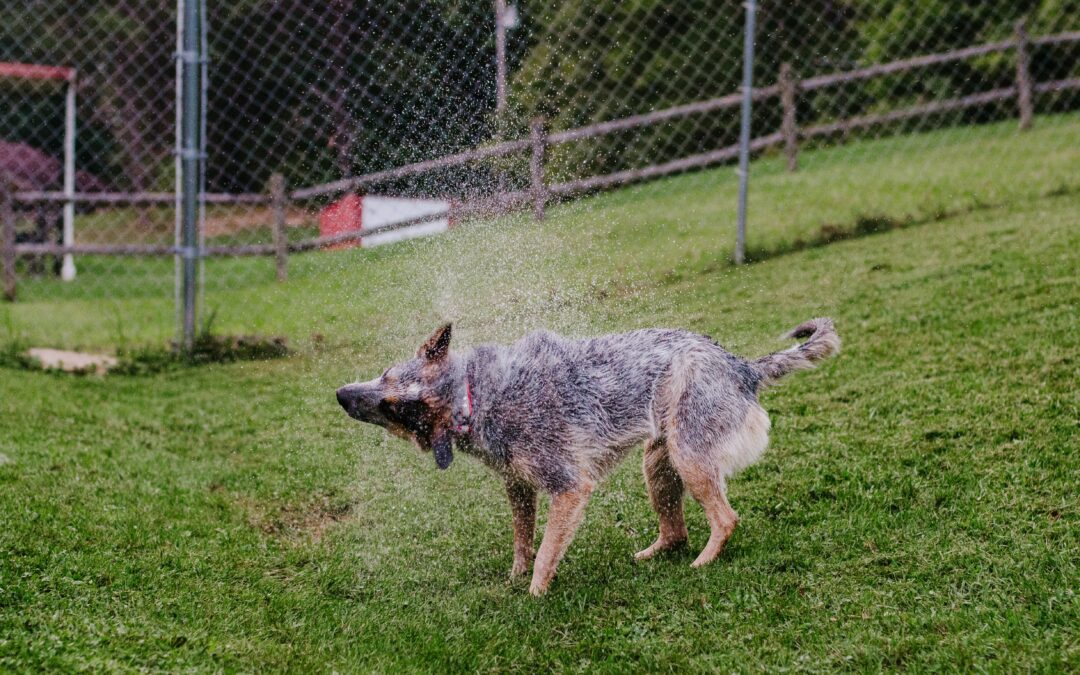Dogs can shake or tremble for a variety of reasons and it’s important to ask why.
A dog shaking can be a very natural reaction to something in their current environment. They could be cold or wet, excited, nervous, or anxious. The first port of call is to check their behaviour and see if it’s related to one of these factors. There are of course medical reasons why a dog would shake or tremble. It’s important to recognise if your dog’s shaking is more than just a temporary reaction or behaviour shift because of the situation.
As a dog owner, you’ll know your dog best and can probably most easily recognise if there’s a problem. If the cause isn’t obvious, it might be time to call the vet and find out which of the following reasons is causing the shaking behaviour.
Psychology
Your dog might display shaking behaviour when they’re stressed or anxious. Each dog is different but some common causes of stress are weather conditions such as thunderstorms and some man made ones like fireworks. Separation anxiety can be another big cause of worry for your doggie or they can use it as a technique to go out for a walk or to seek attention. If you can identify and eliminate the cause of stress, this should solve the problem. If not, it might be worth speaking to your vet about some anti anxiety medication or seeking the help of a dog behaviourist.
Environment
Your furry friend could be shaking because of the immediate environment — are they cold? Did they get wet on the walk? Is there something else that could be making them shake such as some insects around that they’re trying to shake off? If temperature or discomfort is making them tremble, it should be fairly obvious but sometimes it isn’t. Make sure to dry them off if you’ve had a wet walk and consider their temperature when it’s cold outside and get them the necessary gear for colder temperatures.
Medical reasons for shaking
Distemper
Distemper is a serious condition and causes trembling in dogs. This disease is a higher risk to dogs who haven’t been vaccinated against it. The shaking will usually be accompanied by other symptoms such as fever, coughing, lethargy, disinterest in food, and discharge. Call the vet immediately if you suspect distemper and they will be able to prescribe medication and other interventions to help your pup’s immune system fight back.
Poisoning
If you think your dog might have swallowed something toxic, this is a medical emergency — don’t delay in getting them to the vet. The shaking will probably be accompanied by vomiting, diarrhoea, drooling, seizures, weakness and disorientation. It’s so important to keep dangerous substances away from your dog; these can include, but are not limited to, chocolate, insecticides, chemicals, anti-freeze, xylitol (sugar substitute) and grapes.
Ageing
Old age comes to us all, and sadly, your doggo is no exception. General aches and pains that come with the ageing process can cause your furry friend to have trembling legs. If you’re noticing this sign in your older dog, have a word with your vet to check for signs of pain and what help is available for them so that they don’t suffer.
Seizures
Seizure disorders such as epilepsy cause shaking just as they do in humans. The symptoms of a seizure may include loss of consciousness, stiffening, jerking, drooling and foaming at the mouth. This can be very alarming for you to experience as a dog owner but a trip to the vet to find the right medication to manage the disorder should provide comfort to you and your favourite canine companion.
Nausea
As you no doubt already know, dogs can suffer from nausea for all kinds of reasons. These can include motion sickness, heat, eating something abnormal or poisoning. Quite often they’ll shake from the discomfort, as well as perhaps drooling, lip smacking, yawning or swallowing. It’s vital to find out the reason for their nausea to end their discomfort as we all know it feels really awful!
Other causes
This is by no means an exhaustive list of conditions that could cause shaking and it could be related to kind or liver problems, generalised tremor syndrome (GTS), a neurological condition or hypoglycaemia, among others. The bottom line is that if your dog is shaking, first rule out situational factors, and if you suspect something concerning is going on, contact the vet straight away.
Learn more about us
Subscribe to the DAR Newsletter below:
About the author



